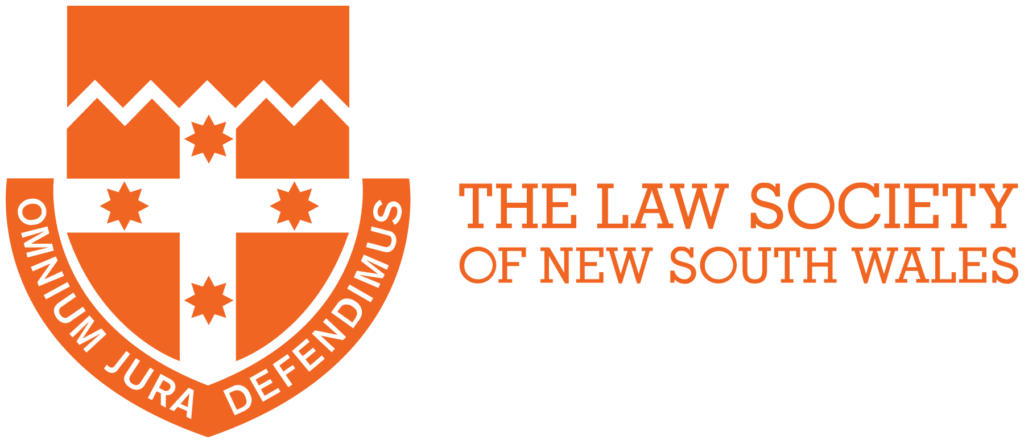Commercial Property Lease Lawyers
We review Sydney lease terms, negotiate rent review clauses, and identify hidden costs before unclear obligations or unfavorable conditions lock you into years of financial exposure.


Secure Your Legal Advantage
500+
Your brand deserves to be yours, no question. Join 500+ others who’ve secured trade marks built to grow, scale, and stand out globally.
$10M +
With over $10 million recovered, our clients move forward with renewed clarity, free from delays, distractions, and the weight of unresolved matters.
2,000 +
We’ve helped over 2,000 companies scale, advising on the deals, hires, and legal frameworks behind expansion, funding, and ownership.
40 Years
With 40 years of experience, we’ve all seen the challenges you’re facing. We’ll help you avoid the mistakes others have made.













When Do You Need Commercial Property Lease Lawyers?
Commercial property lease lawyers review, negotiate, and enforce lease agreements that protect your business before you commit to years of rent obligations. You’ll need one when standard landlord templates contain one-sided clauses, when you’re unclear about outgoings and maintenance responsibilities, or when rent review mechanisms could double your costs. Our commercial lease lawyer Sydney team typically assists with the following scenarios:
You're signing your first commercial lease and don't understand the legal terms
The landlord's lease heavily favors them with unusual rent review clauses
You're unclear about who pays for outgoings, repairs, and building upgrades
You need to negotiate a make-good clause that won't cost you six figures on exit
You're expanding into a second location and want better terms this time
Your current lease is up for renewal and rent increases seem excessive
A landlord is threatening to terminate your lease over a disputed breach
You're confused whether your retail premises should be covered by the Retail Leases Act

Commercial Property Lease Lawyers Protecting Sydney Investments
Our team is led by Mark Lazarus, who served as Legal Director at Monster Energy before founding Lazarus Legal. We have reviewed over 450 commercial property lease agreements for NSW businesses since 2019, identifying problematic clauses in 73% of landlord-provided templates. We’ve negotiated rent reduction clauses during market downturns, challenged unreasonable make-good requirements, and enforced tenant rights when landlords failed to meet disclosure obligations.
Why You Need A Commercial Lease Lawyer
Our commercial property lease lawyers don’t just check legal compliance. We assess whether your rent review mechanism protects you during economic uncertainty, whether your outgoings cap prevents unlimited cost exposure, and whether your permitted use clause gives you flexibility to pivot your business model.
Every review includes specific recommendations on disclosure statement requirements, options for renewal that actually work in your favor, and whether your bank guarantee amount is proportionate to the lease value based on NSW commercial lease law.
What To Check Before Signing Your Commercial Property Lease
In Sydney, a commercial property lease sets more than your rent. It defines how easily you can change, grow, or leave and what costs or risks might follow. Commercial property lease lawyers help ensure these terms are planned for at the start, not left to surprise you later.
| Clause | Risk Over Time (What It Means for You) | How We Help Reduce That Risk |
|---|---|---|
| Personal Guarantee | You can remain personally liable even if the business changes, closes, or assigns the lease. | We explain the exposure, and negotiate caps, limits, or release points. |
| Rent Review | Rent can increase beyond what you forecast, impacting cash flow and assignment value. | We model cost scenarios and negotiate fairer review methods or caps. |
| Demolition Clause | The landlord can end your lease early for redevelopment, affecting stability and renewal value. | We check triggers, notice, compensation, and push for clearer conditions. |
| Make-Good | Restoration obligations at exit can create unexpected, large costs. | We define scope early and help plan or negotiate fairer requirements. |
| Permitted Use | Can limit business growth, diversification, or the ability to sell. | We ensure the clause supports your current and potential future use. |
| Assignment / Sublease | Restrictive conditions limit exit options or restructuring flexibility. | We identify unfair terms and negotiate for workable, fairer rights. |
| Relocation Clause | You may be forced to move during the term, causing disruption and unexpected cost. | We check compensation terms and help limit relocation triggers. |
Ella Burgess
Mark was efficient, professional, and conducted everything in such a timely manner with excellent attention to detail. I was very new to the world of small business legalities and he was patient and took the time to take me through all the finer details to ensure it was clear and I was comfortable. I would highly recommend him!
- Looking at commercial space?
Get The Lease Terms Right
Commercial Property Lease Lawyers Answer Your Questions
Do I need a lawyer to review a commercial lease in NSW?
You’re not legally required to use commercial property lease lawyers, but most business owners who sign without legal review end up facing unexpected costs. Commercial leases in NSW aren’t covered by the same protections as residential tenancies, meaning landlords can include almost any terms they want. We’ve seen clients commit to rent reviews tied to CPI with no cap, agree to make-good obligations costing $80,000+ on a five-year lease, and accept outgoings clauses that tripled their annual costs. A commercial lease review typically costs far less than one year of overpaid rent or a disputed make-good clause.
What should I look out for before signing a commercial lease in NSW?
Before signing, examine the rent review clause to understand how much your rent could increase, check whether outgoings are capped or unlimited, and clarify exactly what “make-good” means at lease end. Most landlord templates favor the property owner heavily. You need to understand permitted use restrictions that could prevent you pivoting your business, personal guarantee clauses that put your assets at risk, and whether you’re liable for structural repairs or just internal maintenance. NSW law requires landlords to provide a disclosure statement at least seven days before signing, but this doesn’t explain how unfavorable the actual terms are for your specific situation.
What's the difference between a commercial lease and a retail lease in NSW?
The main difference is legal protection. Retail leases in NSW are covered by the Retail Leases Act 1994, which provides mandatory disclosure requirements, rent review limitations, and dispute resolution processes. Commercial leases have almost no statutory protection, giving landlords far more freedom to dictate terms. The distinction depends on the premises’ primary use. If you’re operating a cafe, shop, or restaurant, you’re likely covered by retail lease protections. If you’re leasing warehouse space, office premises, or industrial property, you’re under a commercial lease with minimal regulatory safeguards. Some landlords deliberately structure leases to avoid retail classification, so it’s worth having a commercial lawyer confirm which regime applies before you sign.
Can a commercial lease lawyer negotiate better terms with my landlord?
Yes, and landlords expect it. Most commercial property lease templates are starting positions, not final offers. We regularly negotiate caps on outgoings, remove personal guarantee requirements for established businesses, secure rent-free periods for fitout, and insert break clauses that give you exit options if circumstances change. Landlords want reliable tenants more than they want every clause in their favor. We’ve negotiated rent reductions of 15-20% for clients with strong business cases, extended option periods from three to five years, and removed make-good clauses worth $50,000+ by presenting market comparisons and tenant improvements that benefit the property. The key is knowing which terms are negotiable and having leverage points the landlord actually cares about.
What should I do if I'm in a commercial lease dispute with my landlord?
Document everything immediately. Commercial lease disputes in NSW often come down to what the lease actually says versus what both parties thought it meant. Common disputes involve disagreement over outgoings calculations, landlord delays in essential repairs, disputed lease breaches, and make-good obligations at the end of term. Start by reviewing your lease terms with commercial property lease lawyers who can identify whether the landlord is actually entitled to what they’re claiming. Many disputes resolve through negotiation once both parties understand their legal position. If the landlord is threatening termination or withholding your security deposit, time matters. NSW courts can award damages, grant injunctions, or order specific performance, but you need to act before the landlord locks you out or keeps your bank guarantee without justification.
